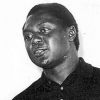7 Best-Selling Tribal History Books Millions Love
Discover Tribal History books endorsed by Hampton Sides, Raymond Porter, and Ja Loka, blending expert insight with reader acclaim.


There's something special about books that both critics and crowds love, especially when they illuminate complex chapters of Tribal History. These 7 best-selling works have become cornerstones for anyone seeking to understand Native American experiences through authentic voices, detailed research, and compelling narratives. Their widespread adoption speaks to their enduring value and relevance in today's cultural landscape.
Experts like Hampton Sides, bestselling author known for engaging historical works, and Raymond Porter, an advocate for equality deeply moved by Native American stories, have championed these titles. Meanwhile, cultural commentator Ja Loka emphasizes the transformative power of uncovering overlooked histories. Their endorsements reflect both scholarly rigor and heartfelt connection, guiding readers to profound insights.
While these popular books provide proven frameworks for exploring Tribal History, readers seeking content tailored to their specific interests might consider creating a personalized Tribal History book that combines these validated approaches. This option ensures the rich lessons from these classics align with your unique background and goals.
Recommended by Raymond Porter
Advocate for equality and kindness
“@Native_Today I read this book at 16 and i read it over and over and I learned the truth about America. I fell in love with the spirit of true Americans so much so that I feel more in common with your people than I o of my own. My dream would be to become an adopted true American.” (from X)
by Dee Brown, Hampton Sides··You?
by Dee Brown, Hampton Sides··You?
Unlike most tribal history books that focus primarily on settler narratives, Dee Brown's work dives deeply into the perspectives of Native American tribes during the 19th century. Drawing on council records, autobiographies, and firsthand accounts, it reveals the harsh realities faced by the Dakota, Sioux, Cheyenne, and others, detailing battles and broken treaties with unflinching clarity. You’ll gain insight into the lives of key tribal leaders and the systematic processes that led to their displacement. This book suits anyone seeking a grounded understanding of American West history from the Native viewpoint, though its somber narrative may be challenging for those unfamiliar with this era.
by Andrés Reséndez··You?
by Andrés Reséndez··You?
Andrés Reséndez, a historian at the University of California, Davis, challenges the conventional narrative of American history by revealing the extensive and overlooked system of Native American enslavement. You’ll gain an eye-opening understanding of how indigenous populations were forcibly exploited for centuries, from colonial silver mines to domestic servitude, reshaping the story beyond just disease-driven decline. The book draws on firsthand testimonies and archival evidence, exposing complex dynamics including intertribal slavery and settler involvement. If you want to explore a critical yet neglected chapter of tribal history that reshapes American historical consciousness, this book offers a detailed and sobering examination.
by TailoredRead AI·
by TailoredRead AI·
This tailored book explores the depths of tribal history with a focus on your unique interests and goals. It examines pivotal events, cultural traditions, and historical narratives that shaped indigenous communities, blending widely validated knowledge with personalized insights. By concentrating on themes and periods that resonate with your background, this book provides a rich understanding of tribal experiences and legacies that have influenced today’s society. Through a personalized exploration, the book reveals nuanced perspectives on tribal governance, conflicts, and cultural preservation. It thoughtfully covers how historical contexts intertwine with contemporary implications, making the learning experience both relevant and engaging for you. This tailored approach ensures you gain meaningful insights that align closely with your specific curiosity and learning objectives.
by Walter McClintock·You?
Walter McClintock offers a visual journey into Native American tribal history through his 1923 publication, showcasing photographs bound in a decorative hardcover that preserves a moment in time. This collection allows you to engage directly with historical imagery, offering insight into the culture and environment of the era rather than a narrative history. If you appreciate authentic visual documentation and are looking to deepen your understanding of Native American heritage through original sources, this book provides a compelling resource. While it doesn't provide extensive textual analysis, its photographic focus makes it ideal for those valuing primary visual records in tribal history.
by Bill O'Reilly, Martin Dugard··You?
by Bill O'Reilly, Martin Dugard··You?
What started as a detailed exploration of the American frontier evolved into a vivid recounting of the brutal conflicts between Native American tribes and the expanding United States. Bill O'Reilly and Martin Dugard guide you through key moments like the Battle of Tippecanoe and the tragic Trail of Tears, revealing the harsh realities behind familiar historical figures such as Tecumseh, Andrew Jackson, and James Monroe. This book offers you a clearer understanding of the complex and often violent formation of America’s tribal history, with chapters that peel back layers on battles and policies that shaped the nation. Its focus on lesser-known events alongside well-documented ones makes it a gripping read for anyone curious about the untold stories of this turbulent period.
by James Jefferson; Robert W. Delaney; Gregory C. Thompson·You?
by James Jefferson; Robert W. Delaney; Gregory C. Thompson·You?
What started as a meticulously compiled record of the Southern Ute Tribe by James Jefferson, Robert W. Delaney, and Gregory C. Thompson became a distinctive historical account that goes beyond typical tribal chronicles. This book offers you detailed insights into the Southern Ute community's past, social structures, and cultural heritage, drawing from firsthand sources and archival research. You’ll gain understanding of tribal governance and historical contexts that shaped the Southern Ute people, making it especially useful if you seek to deepen your grasp of Indigenous American history. It’s best suited for historians, cultural scholars, and anyone interested in authentic tribal narratives rather than casual readers.
by TailoredRead AI·
This tailored exploration of tribal history offers a meticulously crafted learning journey designed to match your background and goals. It focuses on essential themes and narratives that have shaped Indigenous experiences, providing a rich understanding without overwhelming detail. By combining widely acclaimed knowledge with your specific interests, the book reveals the complexities of tribal societies, historical events, and cultural legacies over a focused 30-day timeline. Each section invites you to engage deeply with the material, making complex histories accessible and relevant. This personalized approach ensures you grasp foundational and nuanced elements of tribal history that resonate with your unique perspective and learning objectives.
by Richard N. Ellis·You?
by Richard N. Ellis·You?
Richard N. Ellis, through a series of detailed case studies, challenges traditional narratives about Western American Indian history by focusing on the tangible effects of government policies and white settlement from the 1850s onward. You gain insight into complex topics such as treaty negotiations, military roles during peacetime, and the impacts of legislation like the Dawes Act and Indian Reorganization Act. The book's methodical approach to tribal histories across the Great Plains, Southwest, and Northwest frames these events in concrete, localized contexts, providing you with a nuanced understanding of the economic, political, and social upheavals faced by these communities. This work suits anyone interested in a grounded, historical perspective on Native American tribal experiences rather than broad generalizations.
by Joseph M. Marshall III··You?
by Joseph M. Marshall III··You?
When Joseph M. Marshall III set out to write about Crazy Horse, he drew deeply from Lakota oral traditions combined with meticulous research, crafting a narrative that feels both intimate and expansive. You gain insights into Crazy Horse's visions, leadership style, and the broader context of Lakota resistance during a turbulent era. Chapters detailing his spiritual journey and battlefield decisions reveal how culture and conviction shaped his legacy. This book suits anyone wanting to understand Native American history through the eyes of a respected insider and storyteller rather than through outsider perspectives.
Popular Tribal History Methods Personalized ✨
Get proven Tribal History insights tailored to your unique goals and interests.
Trusted by Tribal History enthusiasts worldwide
Conclusion
These 7 Tribal History books collectively reveal enduring themes: the resilience of Indigenous peoples, the impact of colonial policies, and the power of storytelling rooted in culture and leadership. If you prefer proven narratives that shaped public understanding, starting with "Bury My Heart at Wounded Knee" offers foundational perspectives. For those drawn to nuanced policy and social structures, "The Western American Indian" and the Southern Ute history provide detailed examinations.
Alternatively, combining the broader sweep of "The Other Slavery" with the intimate portrait in "The Journey of Crazy Horse" enriches your grasp of both systemic forces and personal legacies. For visual learners, Walter McClintock's photographic collection offers a unique lens on heritage.
You can also create a personalized Tribal History book to blend these proven methods with your specific interests. These widely-adopted approaches have helped many readers succeed in deepening their understanding and appreciation of Tribal History.
Frequently Asked Questions
I'm overwhelmed by choice – which book should I start with?
Start with "Bury My Heart at Wounded Knee." It offers a vivid, foundational understanding of Native American struggles in the American West, setting the stage for deeper exploration.
Are these books too advanced for someone new to Tribal History?
Not at all. Books like "Killing Crazy Horse" and "The Journey of Crazy Horse" use narrative storytelling accessible to newcomers, while others provide detailed analysis for deeper study.
What’s the best order to read these books?
Begin with narrative histories such as "Bury My Heart at Wounded Knee," then explore focused studies like "The Other Slavery," followed by visual or policy-focused works to round out your perspective.
Can I skip around or do I need to read them cover to cover?
You can skip around based on your interests. Each book stands alone, so whether you prioritize biography, policy, or visual history, you’ll gain meaningful insights without sequential reading.
Do these books assume I already have experience in Tribal History?
No, they’re written for a broad audience. While some delve into complex topics, the authors provide context and storytelling that welcome readers at all knowledge levels.
How can I get Tribal History insights tailored to my specific interests?
These expert books offer rich perspectives, but personalized books can complement them by focusing on your unique background and goals. Explore creating a customized Tribal History book to get targeted knowledge efficiently.
📚 Love this book list?
Help fellow book lovers discover great books, share this curated list with others!
Related Articles You May Like
Explore more curated book recommendations


![1923 Old Indian Trails Walter McClintock Native American Tribal History Photos [Hardcover] Walter McClintock book cover](https://m.media-amazon.com/images/I/41TXYJXfMLL._SL500_.jpg)

![Rare James Jefferson, Robert W Delaney / Southern Utes A Tribal History SIGNED 1972 - Southern Ute Tribe / University of Utah Press [Paperback] James Jefferson; Robert W. Delaney; Gregory C. Thompson book cover](https://m.media-amazon.com/images/I/41DHQXsFOdL._SL500_.jpg)

